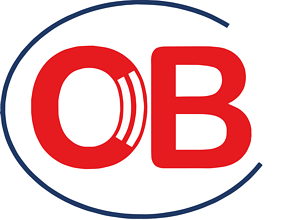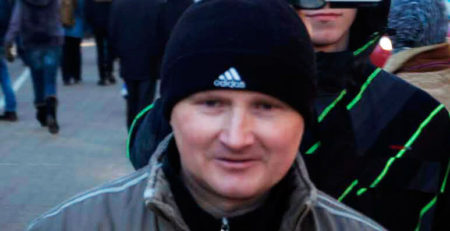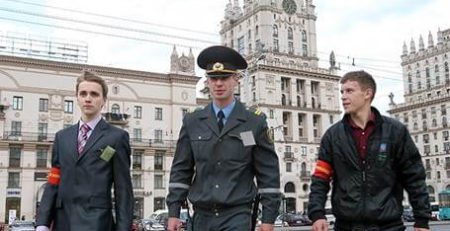Belarus at the crossroads of international relations
The efforts to change the perception of Belarus in the world, to strengthen relations with the West, to receive as much foreign investment to support the weak Belarusian economy as possible, and at the same time not to jeopardize relations with Moscow – these are the most discussed topics in Belarusian international relations in recent months. In the second part of our interview, we had the opportunity to discuss these issues with a leading analyst of the Belarusian Institute for Strategic Studies, Dzianis Melyantsou.
The ghosts of privatization
Regarding privatization, is there a risk that the problems of the early 90s in Russia will occur: the emergence of oligarchs and a whole range of social problems?
They hardly will. Firstly, our establishment would like to avoid precisely this Russian experience. Secondly, the Belarusian authoritarian government is populist in nature. It still relies on the opinions of the people and is very sensitive to their dissatisfaction. And if hundreds of thousands of people lost their jobs, this would significantly shatter the ruling foundations. That is why the government is guided by a different principle. If there is a big gap in the budget, something has to be sold. And then life goes on. This asset sale may continue for ten years. This is how, a factory producing watches and a bicycle factory were sold. Even today there are lists of businesses that are for sale. For example, a number of modernized quality factories in the sector of oil processing and the Minsk Wheel Tractor Plant, which manufactures chassis for rocket launchers for Russia. Except that nobody will buy them at the price Minsk requires. On the other hand, these plants generate regular profit for the government, so the question of their sale is not on the agenda at the moment.
In addition, the sizes of the private and state sectors are virtually equal in Belarus today. And the private sector is developing further.
Minsk, without doubt, has great hopes for Russia’s help. And despite the fact that Russians now have enough of their own problems, they could easily find at least 2 billion for its Western ally, since Belarus itself is considered a kind of showcase for all Russian integration processes. So the government will not rush with these sales.
In case of harsh privatization the question of unemployment will arise. In the past, surplus labor force could be sent to work in Russia, today it’s no longer possible. In addition, there are Ukrainian refugees here who undercut the domestic labor market. Therefore, it is a much more delicate matter now than before.
When considering the sale of enterprises does Minsk choose between Russian and European capital?
Ideally, this should be balanced. Russian capital is less predictable than the Western and it always comes together with Russian politics. Therefore, the government fears it and attempts to balance financial flows from both sides. That is why various investment forums were held in the EU, the USA, but also in Minsk in recent years – they have to demonstrate that the investment climate has been improving. It is true that in the ranking of Doing Business, Belarus has risen significantly. Except that few investors know about this improvement and Belarus as such.
For example, in September last year we organized a joint event with the National Agency for Privatization and a private investment firm Juniter. It was a big event with 700 participants, with many representatives of foreign companies. Everyone said: “Your country simply does not exist on the European investment map.” No one knows the local conditions, nor the payback period, nor the political environment. So now Minsk is actively trying to show itself to the world, but the process is difficult and it will take many years. On the other hand, Russian businessmen know the local environment better and they are better prepared. A lot of contacts remained from the Soviet era.
Is a possibility of Belarusian capital considered as well?
There is not enough money for this in Belarus. In this sense Belarus is a poor country. There are practically no domestic investors. Industrial enterprises are big and nobody has domestic resources for their acquisition. That is why it will be 100% foreign capital. Just in case that finding an investor who accepts Belarusian conditions will completely fail, a certain demerger between loyal businessmen is considered. The condition for this will be the obligatory fulfillment of social obligations.
European and Chinese money in Belarus
How do you evaluate the projects financed by European money that have already been implemented in Belarus?
The reconstruction of the highway Minsk – Brest was very successful. But this is not an investment, it is European grant aid, which amounts to around 40 million Euros annually. Investments are much more complicated. For a long time, because of the sanctions, the European Investment Bank did not have a mandate for cooperation with Belarus. A similar situation existed for the European Bank for Reconstruction and Development. Previously, the EBRD was running a Belarusian program for support of small and medium enterprises, but it was very modest. Now, after the lifting of sanctions, a new program is being prepared. EIB and EBRD now have a mandate to expand cooperation with Belarus. But this is not basic capital. The capital that could come here is private, from individual EU Member States. Particularly from Germany, which is keen to enter the Belarusian market.
Why do you think so?
The intensity of visits by German politicians and businessmen has noticeably increased. During these trips they are actively interested in investment opportunities. After five or six years even the Minsk Forum has been renewed – a conference which was traditionally organized by the Association of German-Belarusian friendship. There was an interruption after 2010 election, but now the forum is restored. During the last event the main economic topics were the state of the Belarusian economy, and opportunities for establishing joint ventures and investments. I made this conclusion from my personal meetings in Germany. They are interested in expanding privatization.
The interest of Poles is also obvious, for them it is important to compensate for losses caused by the punitive war between Russia and the EU. The Polish side is interested to move processing plants to Belarus, since, under the regulations of the Customs Union, Belarus may buy raw materials in Poland and, after processing, can sell them to Russia as Belarusian goods. Talks on the development of such joint ventures started right after the introduction of sanctions, that is why Polish Minister of Agriculture came to Minsk.
There is an interest from the Baltic countries, as transit of Belarusian goods often goes through Baltic ports. For this purpose Belarusians have recently bought a stake in the Klaipeda port.
Slovenian companies from the construction sector have also shown interest.
What does the famous Belarusian-Chinese friendship look like? What is the current situation?
This is one of the sensitive issues. It is already a year ago that Lukashenko for the first time publicly said that he was not satisfied with the cooperation with China, because there was too big of a disparity. We have a large deficit in trade relations with China. China supplies lots of cheap goods to Belarus, while Belarus mainly sells raw materials to China: potassium fertilizers, flax, etc. In addition, there is the issue of loans. Yes, China is ready to lend to Belarus, but it is a tied loan, i.e. we borrow money to buy Chinese goods. Chinese workers are also being sent here.
Another painful issue is the industrial park. It is still not clear who will be residing in the park and what will be produced there. It is also not possible to evaluate the effectiveness of this project. Construction work is being delayed. Now there are talks only about the construction of infrastructure, rather than new production.
That is why Kiryl Rudy, the biggest liberal in government structures, became the Ambassador to the PRC. His task is to balance the disparity. Politically everything is in order, an agreement on the Comprehensive Strategic Partnership was signed. But all political accomplishments, the trips of Lukashenko to China, and the trips of Chinese officials to Belarus, are disconnected from the economy.
How far can the cooperation between Belarus and the EU go?
Very clear reference points and the understanding of limits on both sides are quite visible in relations with the EU. It is clear that neither the association with the EU nor economic integration, as in the case of Ukraine, is possible. Belarus is a member of the Eurasian Economic Union. The best result that Belarus could wish for is signing basic cooperation agreements with the EU. Nowadays Belarus has no such agreement with the EU. We primarily talk about the PCA agreement (Partnership & Cooperation Agreement) that the EU usually signs at the beginning of cooperation with any nation. And then on the basis of it, for example, the Association Agreement is concluded. Belarus did not even go through the first stage. The agreement was signed in 1995, but first Lukashenko did not feel like ratifying it and later the EU itself “froze” it. Therefore, essentially the main legal document at the moment is the trade agreement between the EU and the USSR concluded in 1989. Belarus could now be interested in an agreement that would define the political and economic cooperation framework, but it is not possible to come back to the text from 1995 because EU law has changed significantly since then. On the other hand, the signing of the new treaty implies a lengthy ratification. Therefore, diplomats are currently lobbying for an interim agreement, which could enter into force quickly, and could be applied until PCA is fully ratified.
Belarus would naturally favor a complete lifting of sanctions. These are personal sanctions against four people suspected of abductions of Belarusian opposition officials. Also the lifting of the embargo on the delivery of goods that military forces can use against participants of opposition demonstrations are on the agenda, such as batons, water cannons, and tear gas. These questions are not the most important, but they spoil the atmosphere of cooperation. That is why it is the task of diplomats to get rid of the sanctions.
The second issue is the extent of financial support which the structure of the EU allows, because the potential for obtaining macro-financial support through neighborhood instruments and European investment funds really exists. Certainly not in the same volume as in Ukraine. But when we compare support with the countries of the Eastern Partnership, the assistance to Belarus is significantly smaller.
And then there is the question of political convergence, in other words the interest of senior representatives to visit Minsk not in the “Normandy” format within Minsk negotiations, but directly for the purpose of dealing with state officials in Belarus.
The EU in its turn expects steps towards democratization of the political process in Belarus, which will not happen entirely. But Belarus will take some steps – the abolition of the death penalty, implementation of the recommendations of the OSCE for election legislation, and changes in the party system. Belarus will adopt a number of European standards in the field of trade, environment, and border protection. The latter, the border protection, remains a priority for the EU. Cooperation with Frontex will be more intensive.
I will also mention the simplification of the visa regime. The negotiations on two agreements at once (Visa Facilitation Agreement and Readmission Agreement) are in the final stages and I believe that in the near future the relevant documents will be signed. Simplification of the visa regime will be mutual. Already, Belarus has abolished visa requirements for EU citizens who come to Hrodna, Bialowieza Forest and Augustan channel for several days. A 5-day visa-free stay on the territory of Belarus is allowed for EU citizens who travel through Minsk-2 airport. It was a goodwill gesture from the Belarusian government. In return, the EU will have to be forthcoming on the issue of diplomatic passports, because many European countries called in the past for stricter safety measures when issuing Belarusian diplomatic passports. Another issue is readmission. The EU does not want to agree to the establishment of a transitional period to prepare facilities for migrants. Ukraine gained such an opportunity, we did not. That is why the entire process has slowed down, although the signing was already anticipated to take place last year during the Riga summit of the Eastern Partnership.
Everything you say sounds very optimistic. However, similar periods of convergence between the EU and Belarus also happened in the past. The last one ended on December 19th, 2010. Is it possible that it will be a failure this time?
Everything can go wrong at any time. When we consider the case of Hungary, an EU member state, we see the beginning of authoritarian tendencies despite going through democratization. And if tomorrow brings other conditions for dialogue with the EU, it is quite possible that the whole process will stop. Today’s dialogue, however, is more stable than it was between 2008 and 2010. There is an agenda. A number of sectoral talks started – in finance, trade, human rights, and education. Belarusian officials are talking to their European colleagues almost on a weekly basis. There is no suspicion that was felt during the previous relations stabilization. Now the expectation bar is set much lower. The EU understands what Minsk can do and what it won’t do. And Belarus understands better what the EU can offer and what not. Sensitive issues are excluded. Between 2008 and 2010, the West did not give up betting on the opposition. Now, there is no such bet. The developments in Ukraine also had some influence.
And it is not guaranteed that the blame for any possible crisis will be on Belarus. For example, nowadays Belarus insists on СРА and the EU wants to rather limit the relations to visa agreement. And if this situation continues, Minsk can turn around. This already happened in the case of simplification of visa regime. Minsk had been asking for this since 2004, while the EU called for political reform. In 2011, the EU began asking Minsk to launch negotiations on visa facilitation, but Minsk lingered for several years.
Ukrainian experience
Is there a concern that Russia will respond to this convergence of Belarus and the EU nervously, as it happened in Ukraine?
In this regard, Ukraine and Belarus cannot be compared. Kiev long ago made a political decision on European integration. And when the Eastern Partnership started, Ukraine was not satisfied. It was too little for Ukraine, while for Belarus it was too much. Now stabilization is on the agenda in Belarus – the transition from hostile relations to normal, to the lifting of sanctions, to the political and business cooperation. The Kremlin also understands that this is only about restoring normal relations and does not see a threat. The threat comes in the event of talks about the Association Agreement with the EU or NATO entry. This is the red line.
After the Ukrainian events of recent years, are there political parties in Belarus aimed at revolution, or “majdan”?
We should remember that many Belarusian politicians were at Majdan and supported Ukrainian revolution. In addition, not all of them are linking the war in Donbas to revolution at Majdan and a change of government. And even if only three percent of the population in Belarus would like to repeat “majdan”, it does not mean that these numbers are guiding Belarusian politicians. Not all are focused on the electorate. It may sound like a paradox, but given the current political system, many of them are ready to announce statements that have no support in society.
For example?
For example, BLF (Belarusian Popular Front), which declares the entry of Belarus into NATO as its goal, which Belarusian society absolutely does not support. BLF attended Majdan. Or actions by Mlada fronta with portraits of Bandera and Shuchevich. But since they have no direct link to the voters (they do not get their votes), they have the opportunity to say what they want. But not all parties do so. Many go for a populist approach. For example, the Christian Democrats now promote a project against alcoholism in the population and for clean drinking water. They turned their politics away from radical street topics towards social themes.
Within Mediabarometr we regularly recommend to the opposition that they listen to what society deems essential, rather than what they or their donors do. And the opposition is gradually beginning to realize this, there is an understanding.








